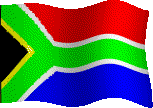


























|

|

|

|

|

|

|

|

|

|

|

|

|

|

|

|

|

|

|

|

|

|

|

|

|

|
|
|
|

|
|
|
BANTU STEVE BIKO |
|
|
|
|
|
Bantu Steve Biko is without a doubt one of the biggest names that emerged out of the anti-apartheid struggle in South Africa. He is one of the most celebrated martyrs of the South African liberation movement. He became famous during his college years as the founder of the popular Black Consciousness Movement that promoted self-pride among South African blacks and urged them to take the leading role in the fight against apartheid. Before Biko's influence, many blacks had relied unnecessarily on other races in their fight for their rights. Steve Biko was born on December 18th 1946 in Ginsberg, a township outside King William's Town. He was one of the 4 children of Mathew Mzingaye Biko and Alice Nokuzola Biko. Biko attended Charles Morgan Junior School where he quickly got recognized as one of the most promising students. With his sharp intellect however came social activism. He was known even at a young age to question the white South African government's policies on issues relating to blacks. He then moved to Forbes Grant High School for his Senior Secondary studies. At Forbes his academic superiority got so recognized that they asked him to conduct volunteer classes in the evenings for his peers. In 1963 he got accepted to Lovedale College. That same year however he got expelled for his political activities. This expulsion would mark a turning point in his life because rather than diminish his political activities, it actually emboldened him. In 1964 he got admitted to St. Frances College in Marianhill. 2 years later he moved to the Medical School of Natal University in Natal, where he took Medical studies. It was while a student here that he began actively participating in the National Union of South African Students(NUSAS), a multi-racial student organization that fought for various student causes. With time however Biko and his colleagues began feeling that NUSAS was not adequately addressing the concerns of black students. In 1969 therefore he and his colleagues founded the South African Students Organization(SASO), a black student organization with Biko as its first President. That same year(1969), Biko began the Black Consciousness Movement for which he would later be remembered the most for. This movement was all about black pride, and encouraged blacks to fight their own fights. Among its major goals was to discredit the notion that blacks were inferior to whites and thus had to be subservient to them. Biko believed this psychological re-positioning was vital in the fight to end apartheid and dedicated a lot of effort towards that end. By 1972 SASO was so well entrenched in Universities and Colleges that its newsletter was reaching some 4000 students. SASO was also involved in providing legal aid and medical clinics as well as social upliftment programmes in black communities. This was in line with the Black Consciousness idea that blacks fight their own fights and chart their own future. In 1972 with his political star rising and with the need to fill the political vacuum created by a lot of ANC leaders either arrested or in exile, pressure was put on Biko to form a major political party. Biko knew very well that such a move would expose him to the dangerous consequences his predecessors had suffered--jail, exile or even death. The courageous Biko however stepped up to the challenge and in July 1972 founded the Black Peoples Convention(BPC). The BPC essentially became an umbrrella body for all the Black Consciousness organizations that had sprung all across South Africa, giving Biko tremendous grassroots support. At this juncture he was clearly a target of the Apartheid government. In 1973 the government banned Steve Biko. Under the ban Biko was restricted to his hometown of King William's Town. In addition to that he was prohibited from speaking or publishing anything about his Black Consciousness Movement. On August 18th 1977 Biko was arrested while on his way home from a political meeting. He later died on September 12th 1977 while in police custody. He was only 30 years old at the time of his death. The police for a long time covered up the circumstances leading up to his death by claiming that he had died as a result of a self-imposed hunger strike. 20 years later however, the truth finally came out at the Truth & Reconcilliation Commission established by then South African President Nelson Mandela. At the Commission, the officers who had handled Biko in jail revealed that he had died as a result of head injuries he had sustained on 7th September 1977 while under brutal interrogation. Their testimony said in part, "Biko sustained a head injury during interrogation on 7th September 1977, after which he acted strangely and was uncooperative. The doctors who examined him(naked, lying on a mat and manacled to a metal grille) initially disregarded overt signs of neurological injury." Biko was buried on 25th September 1977 in the Ginsberg Cemetery just outside King William's Town. His legend however has continued way after his death as was evidenced in 1987 when Director Richard Attenborough made the hit movie Cry Freedom, depicting his life. In the movie, prominent American actor Denzel Washington played Steve Biko in one of his most memorable performances to date. In 1997 Nelson Mandela unveiled a bronze statue of Biko in East London at the start of the Truth & Reconcilliation Commission. |
|
|
Return to the Home Page |
|
|
Copyright©AfricanTribute.com Inc., 2002 |
|
|
|

|
|
|
|